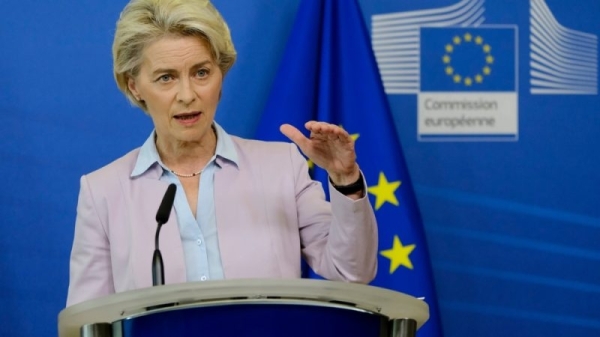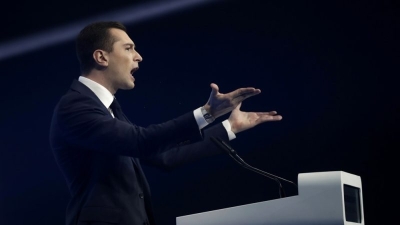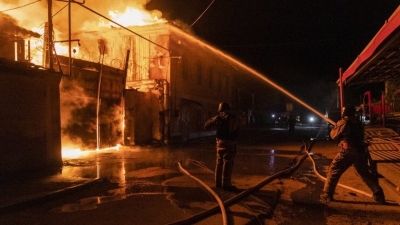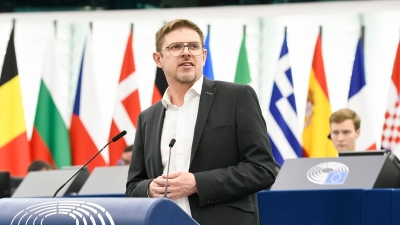Von der Leyen ponders conservatives parties joining centre-right in next EU Parliament

European Commission President Ursula von der Leyen has left the door open on the possibility of some parties of the conservative ECR joining her centre-right European People’s Party in the new European Parliament after the June elections.
Asked by journalists on Wednesday (21 February) if she would personally be open to a coalition with ECR, she said she is ready to work with forces that respect three ‘red lines’: being pro-European, pro-Ukraine, and respecting the rule of law.
“But the cut-off line is, do you stand for democracy? Do you defend our values? Are you very firm in the rule of law? Are you supporting Ukraine? And are you fighting against Putin’s attempt to weaken and divide Europe? And these answers have to be very clear,” she said.
Von der Leyen also highlighted that it is yet to be seen how the future Parliament’s balance of powers will look, bringing up the possibility of some ECR delegations shifting to EPP.
“We do not know who is forming [the European Conservatives and Reformists (ECR)] after the elections, what groups will leave ECR and, for example, join EPP, which is also possible,” von der Leyen said.
Other political parties, such as the socialists, the greens, and the left, have denounced the EPP’s shift towards the right, seen on several occasions in recent months.

Socialists accuse EPP and Renew of normalising far right
The Socialists and Democrats (S&D) group in the European Parliament accused the European People’s Party (EPP) and the Renew group of contributing to the normalisation of the extreme right and links with Russia.
At the beginning of this week, von der Leyen announced her intention to run for a second mandate as president of the EU executive and EPP President Manfred Weber told journalists she would be the only candidate to run as Commission president on behalf of the EPP family.
But she will not run for a seat in the European Parliament as other candidates from other European political parties have announced.
In 2019, Weber was the lead candidate for the centre-right family. According to EU treaties, EU leaders can take into account the nomination of the leading candidate of the party which gets the majority of votes as Commission president. But they can also disregard it, as was the case when von der Leyen was appointed.
According to EU treaties, the decision is voted by a qualified majority vote, however, member states try to bring all member states on the same page on the nomination, to give the new Commission president the needed legitimacy.
In 2019, Weber’s candidacy was opposed by a number of EU leaders, including current Hungarian Prime Minister Viktor Orban and French President Emmanuel Macron. An agreement was eventually reached with von der Leyen as a last-minute compromise candidate.
Following the nomination by heads of state, the candidate for president of the Commission must gain approval through a secret ballot vote conducted by members of the European Parliament (MEPs) to receive a vote of confidence.
According to the latest polls by Europe Elects, ECR will likely be the third group in the European Parliament.
If predictions are confirmed, the German Christian democrat may still command the majority in Parliament with the support of the traditional ‘coalition’ of the EPP, Social Democrats, and Renew Europe, although liberals in the ALDE party, who are part of Renew, have recently criticised what they called EPP-led Commission.
In 2019, von der Leyen secured her position with a margin of just nine votes in the European Parliament. Back then, she got support from the Polish PiS members of the ECR and she can probably again count on the support of some in the ECR, like Giorgia Meloni’s Fratelli d’Italia.
Read more with Euractiv




